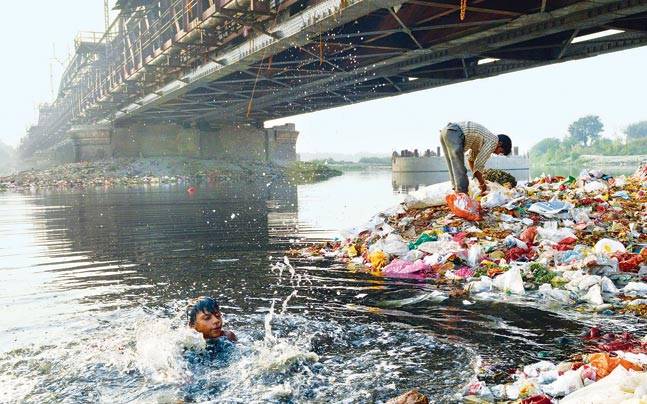Rivers are the lifelines for all life on this earth. Necessary for the entire bio-diversity, rivers are the source for potable water, irrigation for cultivation, power generation, transport, food, etc. The life on earth is dependent on these rivers and therefore it is of utmost importance to take care and preserve them. On the occasion of World Rivers Day (September 27), experts urged people to take collective responsibility to combat river pollution by changing their lifestyle and going back to roots. They also suggested that composting your waste and rainwater harvesting could be effective measures for the conservation.
Sunil Joshi, river conservationist said, “Increasing urbanization and changing lifestyle are the reasons for the increase in river pollution. The chemical-based cleaners used in household or bathing scrubs and shampoo often release harmful toxins. All of these used by people eventually enter the river causing pollution. This also harms the flora and fauna of the river ecosystem. So many aquatic species are getting extinct because of this continuous contamination.”
He also suggested that using natural products and homemade cleaners could help in controlling the river pollution. He said, “There are 3R’s that we need to follow such as Reuse, recycle and reduce. We have to reduce our waste as all the waste eventually goes to the rivers. Instead of using chemical-based products, we should go back to our roots and use natural products such as instead of shampoo we can use shikakai/amla or instead of toothbrush/toothpaste, we can use of ‘datun’ to clean our teeth. These lifestyle changes will ensure that no toxins are going inside the rivers.”
Joshi also suggested a DIY to make cleaners at home. He said, “You can make your cleaners at home with the help of baking soda, vinegar and oil.”
Shailaja Deshpande, founder of Jeevitnadi also echoed the same sentiment of bringing changes in the lifestyle to conserve the rivers. She said, “In the current scenario, rivers are merely used for dumping the garbage. There are no proper treatment plants that avoid the toxins in the rivers. Government and administration should adopt strict measures of having operational treatment plants so that no industrial or sewage waste should enter the river. The increase in toxins in the river resulted in the reduction of oxygen levels causing the damage to the river ecosystem and the bio-diversity. Earlier there used to be lotus plants in the river but due to the increase in pollution, it is reducing and even a bird that used to come on these lotus plants, which is popularly known as lotus bird is also becoming extinct. Due to this lack of oxygen level, rivers are no more able to take the bio-degradable waste as well.”
She further suggested that sustainable measures such as composting and rainwater harvesting should be implemented across society. She said, “We have to understand that whatever we are throwing in our sink and it will eventually go to the rivers and will come back to us. Therefore, eventually, it will impact our health as we will be consuming this water. Everyone should take responsibility for his or her waste so that it does not enter the river. If we can have a washing machine at home why not a composting system in every household. This will ensure that no waste from the household will be going inside the rivers.”
She further said, “Nowadays people are using borewell since they are extracting groundwater, they should also work for groundwater recharge. Societies can implement rainwater harvesting that will eventually help in groundwater recharge. We are blessed with so many resources, we have to use them mindfully and sustainably so that we can give a rich legacy to our future generations as well.”
Highlighting river encroachment as another reason for damage to the ecosystem, Joshi said, “Rivers can renew itself but due to encroachments on its bank in the name of beautification it is inflicting serious damage to the entire ecosystem. Earlier there used to be native trees near the banks of the river, which was important for the survival of rivers. Instead of that concretization is happening, dams are getting built that destroys the river and the entire aquatic life. Apart from cleaning, it is also important that if at the community level, such plantation can be done on the banks of the river as a measure of conservation.”

